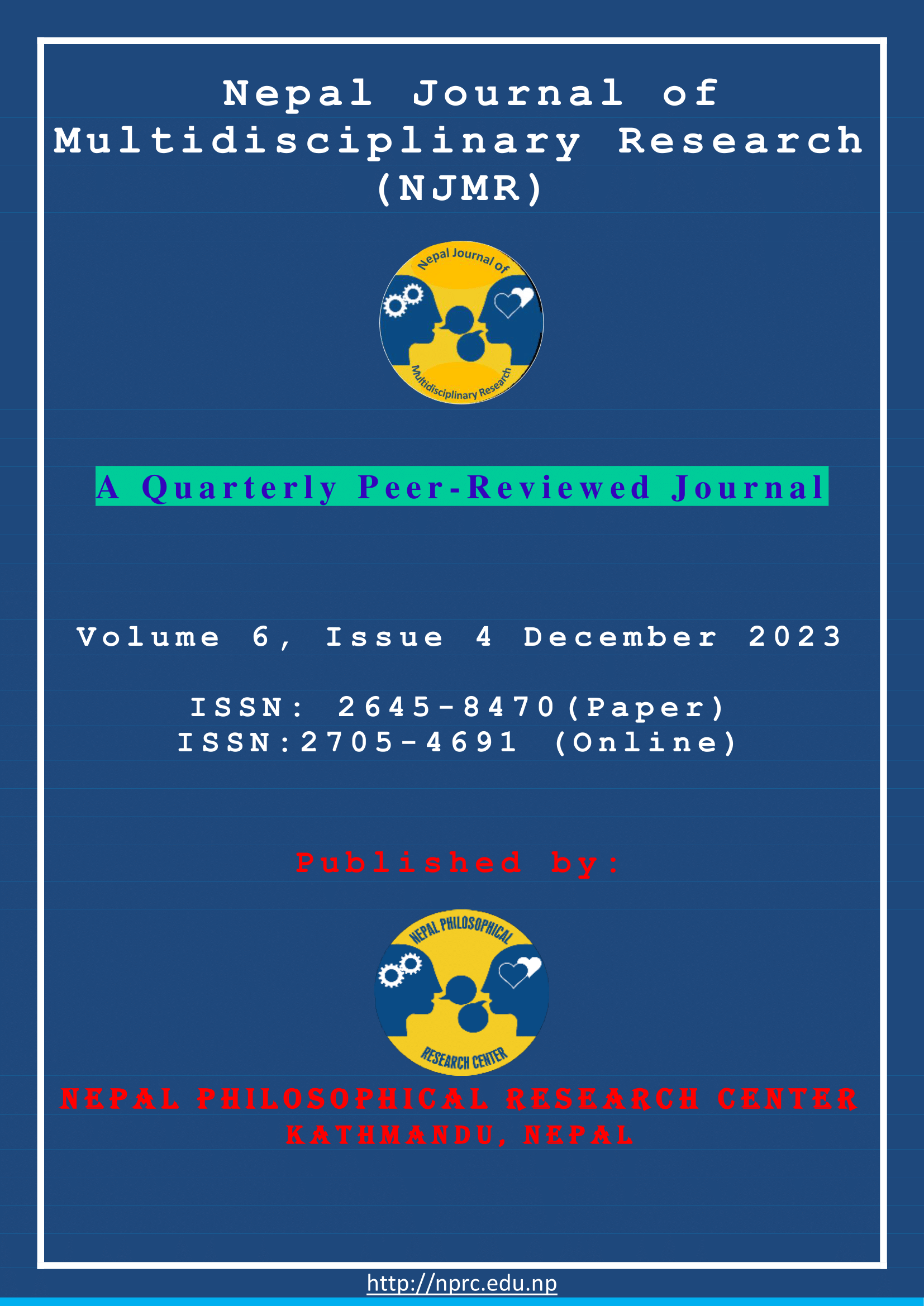Exploring the Perspectives of Tribhuvan University Undergraduate Students Toward Business Statistics: A Study of Shanker Dev Campus
DOI:
https://doi.org/10.3126/njmr.v6i4.62059Keywords:
Business statistics education, Cognitive competence, Difficulty perception, Pedagogical strategiesAbstract
This comprehensive study explored the intricate determinants of Tribhuvan University undergraduate students' attitudes toward business statistics, employing a mixed-methods approach to capture the multifaceted nature of their perceptions. Grounded in theoretical frameworks such as the Theory of Reasoned Action, Expectancy-Value Theory, Cognitive Load Theory, and Effort-Performance Theory, the research analyses the relationship and influence of cognitive competence, value, difficulty, and effort with students' attitudes. With a large sample size of 328 students, the study employs a descriptive and causal-comparative research design to uncover significant correlations between these variables. The regression results highlight the predictive power of cognitive competence, value, difficulty, and effort on students' attitudes, providing valuable insights for educators and stakeholders in enhancing the learning experience in business statistics. The findings underscore the dynamic interplay of these factors over time, emphasizing the need for tailored educational strategies and interventions to foster positive attitudes and outcomes in the field.
Downloads
Downloads
Published
How to Cite
Issue
Section
License
Copyright (c) 2023 Srijana Khadka

This work is licensed under a Creative Commons Attribution-NonCommercial 4.0 International License.
This license enables reusers to distribute, remix, adapt, and build upon the material in any medium or format for noncommercial purposes only, and only so long as attribution is given to the creator.




